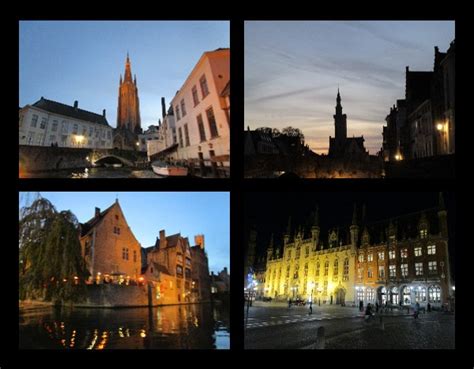A Quote by John Calvin
Our physical illnesses serve us for medicines to purge us from worldly affections and retrench what is superfluous in us, and since they are to us the messengers of death, we ought to learn to have one foot raised to take our departure when it shall please God.
Related Quotes
There are two gods. The god our teachers teach us about, and the God who teaches us. The god about whom people usually talk, and the God who talks to us. The god we learn to fear, and the God who speaks to us of mercy. The god who is somewhere up on high, and the God who is here in our daily lives. The god who demands punishment, and the God who forgives us our trespasses. The god who threatens us with the torments of Hell, and the God who shows us the true path.
There are two gods. A god who casts us off because of our sins, and a God who calls to us with His love.
I know that God loves us. He allows us to exercise our moral agency even when we misuse it. He permits us to make our own decisions. Christ cannot help us if we do not trust Him; He cannot teach us if we do not serve Him. He will not force us to do what's right, but He will show us the way only when we decide to serve Him. Certainly, for us to serve in His kingdom, Christ requires that we experience a change of thought and attitude.
Our parents deserve our honor and respect for giving us life itself. Beyond this they almost always made countless sacrifices as they cared for and nurtured us through our infancy and childhood, provided us with the necessities of life, and nursed us through physical illnesses and the emotional stresses of growing up.
Let us be peaceable as near as we can: let us relent of our own right: let us not strive for these worldly goods, honour and reputation: let us bear all wrongs and outrages, rather than be moved to any debate through our own fault. But in the meanwhile, let us fight for God's truth with tooth and nail.
God uses suffering to purge sin from our lives, strengthen our commitment to Him, force us to depend on grace, bind us together with other believers, produce discernment, foster sensitivity, discipline our minds, spend our time wisely, stretch our hope, cause us to know Christ better, make us long for truth, lead us to repentance of sin, teach us to give thanks in time of sorrow, increase faith, and strengthen character.
Though we are commanded to 'wash ourselves', to 'cleanse ourselves from sins', to 'purge ourselves from all our iniquities', yet to imagine that we can do these things by our own efforts is to trample on the cross and grace of Jesus Christ. Whatever God works in us by his grace, he commands us to do as our duty. God works all in us and by us.
Let us serve Him faithfully as our Master. Let us obey Him loyally as our King. Let us study His teachings as our Prophet. Let us work diligently after Him as our Example. Let us look anxiously for Him as our coming redeemer of body as well as soul. But above all let us prize Him as our Sacrifice, and rest our whole weight on His death as atonement for sin. Let His blood be more precious in our eyes every year we live. Whatever else we glory in about Christ, let us glory above all things in His cross.
None of us like the concept of law because none of us like the restraints it puts on us. But when we understand that God has given us his law to aid us in guarding our souls, we see that the law is for our fulfillment, not for our limitation. The law reminds us that some things, some experiences, some relationships are sacred. When everything has been profaned, it is not just my freedom that has been lost- the loss is everyone's. God gave us the law to remind us of the sacredness of life, and our created legal systems only serve to remind us of the profane judgments we make.
Our lives are full of separations that shake us up, force us to attend to our emotional selves and to learn new ways of being in the world. Although many of our losses are painful, they encourage our gains. The lesson life is trying to teach us is that, regardless of the challenges and changes in the physical world, we will abide in peace by aligning ourselves with our inner changelessness. The power of God in us is more than equal to any moment-no matter what it brings. We live in a loving, supportive universe that is always saying yes to us.
Since the death instinct exists in the heart of everything that lives, since we suffer from trying to repress it, since everything that lives longs for rest, let us unfasten the ties that bind us to life, let us cultivate our death wish, let us develop it, water it like a plant, let it grow unhindered. Suffering and fear are born from the repression of the death wish.
It is quite beyond me how anyone can believe God speaks to us in books and stories. If the world does not directly reveal to us our relationship to it, if our hearts fail to tell us what we owe ourselves and others, we shall assuredly not learn it from books, which are at best designed but to give names to our errors.
Worship ought not to be construed in a utilitarian way. Its purpose is not to gain numbers nor for our church to be seen as successful. Rather, the entire reason for our worship is that God deserves it. (Worship) immerses us in the regal splendor of the King of the cosmos…provides opportunities for us to enjoy God’s presence in corporate ways that takes us out of time and into the eternal purposes of God’s kingdom. As a result, we shall be changed—but not because of anything we do. God, on whom we are centered and to whom we submit, will transform us by his Revelation of himself.
We human beings are not only the beneficiaries but also the stewards of other creatures. Thanks to our bodies, God has joined us so closely to the world around us that we can feel the desertification of the soil almost as a physical ailment, and the extinction of a species as a painful disfigurement. Let us not leave in our wake a swatch of destruction and death which will affect our own lives and those of future generations.



































